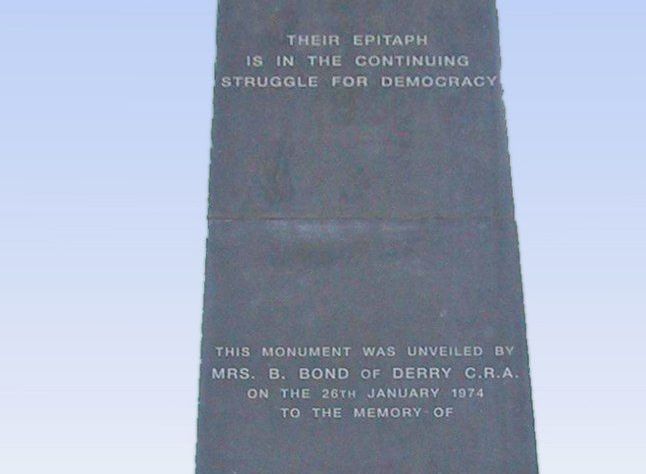George Heslin, the founder and artistic director of Origin Theatre Company. Origin will launch its 10th Annual 1st Irish Theatre Festival this evening in New York. Tomorrow's print/digital edition of the Irish Echo will contain a special supplement about the festival.
By Peter McDermott
George Heslin may be mostly known for his work on two fronts. In fact, he’s involved on a couple more in his busy arts career.
He founded Origin Theatre Company 15 years ago with an explicitly “pan-European” focus: to give playwrights who’d found honor at home the opportunity to be produced in New York City. A few years later, Origin launched the 1st Irish Theatre Festival, which begins its 10th annual event this week. The title was a boast — it was the first festival, and is still the only one, to be devoted exclusively to the work of playwrights who were born on the island of Ireland or had an Irish passport.
Less well known, perhaps, but just as central to his mission is the idea that Irish playwrights resident in America be given every encouragement.
“It’s very important that we create work here,” he said, “that we just don’t become receiving houses for work from Ireland. That’s what different about Origin: we commission writers, we make work, we make new voices.”
In addition to all of that, he has directed outside of Origin close to 70 productions over the past nine years. “Which I absolutely love,” he said.
Heslin is, however, an actor by vocation. When after high school he did a nine-month course in directing at Ireland’s national theatre company, it was to get a new perspective as an actor. “And because it was the Abbey,” he said.
He can remember that from age 5 he wanted to be an actor. There was nothing arts related, though, in his background, other than that his late father, a fitter-welder at Krups’ Limerick factory, who loved anything to do with Hollywood and the movies. “He fancied himself as a bit of film buff,” the son said.
Heslin considers himself fortunate to have been educated by the Jesuits at Crescent College in Limerick where such things were taken seriously. It had something of a reputation to live up to as two of Ireland’s most internationally recognizable personalities had gone to the high school: film actor Richard Harris and BBC presenter Terry Wogan.
During his last year with Crescent’s drama program, he represented Limerick at the National Youth Theatre in Dublin.
Following the Abbey course, which was offered that one time, he spent a summer working in the office of RTÉ’s most popular drama series, “Glenroe.”
He was then hired as an assistant stage manager at the Gate Theatre. There he got the opportunity to work with Ben Barnes (whom he’d met first at the National Youth Theatre), Patrick Mason, Joe Dowling and other leading Irish directors and designers, and also met some of the biggest names in British theatre.
Education resumed
“Working at the Gate was an extraordinary influence on my life, just in terms of its standards in excellence and professionalism,” said Heslin, whose four siblings live in Ireland (“a business guy, a fireman and two nurses”).
Having saved sufficient money, he resumed his formal education and completed a four-year degree course in drama at Trinity College Dublin.
After graduation, Heslin toured with the Abbey in Scotland and also worked with several other leading theatre companies, such as Passion Machine and Fishamble in Dublin, Druid in Galway and the Lyric and the Grand Opera House in Belfast.
The next step was London in the early 1990s, where he got a production job with Brian Friel’s “Philadelphia: Here I Come!” at the King’s Head Theatre, which, starring veteran Eamon Kelly, transferred to the Wyndham Theatre in the West End.
Heslin befriended one of its other leads, Brendan Coyle, who was later to achieve wider fame as a star of “Downton Abbey.” Coyle gave him a copy of the recently published “A Challenge for the Actor” by Uta Hagen.
“I was obsessed with it,” he remembered.
When that long-running production of the Friel play was finished, he thought he’d take a time-out in Australia. Instead his father had put in an application on his behalf for a Morrison visa, which he got, and so it made more sense for the young actor to go stateside. Before that, he’d had no real desire to travel to or to live in New York. “I was happy in London,” he said.
‘American way’
Through the 1990s, he divided his time between Dublin, Limerick, London and New York. One early on-stage role in Manhattan was in “Flaherty’s Window,” a play by novelist Colum McCann, which the National Book Award-winner himself described later as “dreadful” and “should have been so far off Broadway that it could swim away down the Hudson.”
Meanwhile, Heslin recalled, “my life grew here in America.” By 2000, he’d decided to commit.
Close to a quarter of a century later, he still hasn’t made it to Australia. But he did spend two years in the New York master class run by Hagen, who was known, apart from her own illustrious career as an actor, as a teacher to the stars. “An amazing woman,” he said of Hagen who helped him understand the “American way and the American language in rehearsal rooms.”
Heslin said the teacher didn’t involve herself with her students’ lives, keeping, he added, a “boundary of respect” around her. But when a few years later he heard that she was ailing and house-bound following a stroke, he decided to pay her a visit.
He nursed his owned mother in 1999, and was disappointed that more people didn't visit her.
“People shy away from illness,” he said.
His former teacher was similarly “probably dying for a chat,” he reckoned.
“So I bought a bunch of flowers one day. I knew she lived somewhere on Washington Square and walked around looking at names on doorbells.” Finally he found the right bell, rang it and, after he explained who he was to Hagen’s nurse, was invited up.
The 84-year-old teacher and her former student talked for two hours about her remarkable career. He made his move to go when he felt she was getting tired. As he walked out into the hallway, she called after him: “George! The next time: f*** the flowers, bring the champagne!”
Hagen died two weeks later.
By that point, the early months of 2004, Heslin was juggling his acting career with his new-found role as a producer. The former saw him performing in the Broadway national tour of Marie Jones’s play “Stones in His Pockets.”
As to the latter, he said: “After 9/11, I pulled my credit card out of my pocket.” The outcome in 2002 was the New York premiere of Enda Walsh’s “Misterman,” Origin’s debut play.
While on the “Stones in His Pockets” tour in unfamiliar U.S. cities, he found that he had plenty of time on his hands. “I did a lot of reading and I did a lot of thinking,” he said.
The Origin idea became clearer to him.
“I modeled it a lot on the Royal Court in London, which is one of the most extraordinary homes of new writing in England and in Europe in terms of spoken word,” said the new company’s artistic director.
New York gateway
Heslin had thought Source would be a good name, in honor of Hagen’s 1987 memoir “Sources,” but he heard that there was a children’s theatre company in New York called that; so he settled upon Origin.
Origin, which has a full-time staff of five, has been the New York gateway for playwrights from 19 European countries.
And the 1st Irish Festival over the past 10 years has staged 150 plays, slightly over half of which have been world premieres.
Along the way, Heslin has had some important supporters of his mission. He singles out in particular Tom Moran, the former CEO of Mutual of America.
“Tom has just been an extraordinary human being, who believes in people,” Heslin said. “He opened the door of Mutual of America for the festival.
“Lorraine Turner, from the Northern Ireland Bureau, has been amazing as well,” he added.
He pointed to the networking opportunities that the 1st Irish Festival has provided. In a few instances, the showcasing of visiting writer’s work has led to the acquisition of a New York agent.
“We forget how difficult it is to bring work over from Ireland. We’ve a great agreement with the union in terms of bringing people over,” the Limerick man said.
“What’s amazing is what happens to the work afterwards,” Heslin said, pointing to subsequent tours of Ireland in several cases.
Although there are some downsides to the New York theatre scene – the expense and the difficult visa situation for young immigrants being two – there have been some positive developments on the Irish front, of late.
“It’s great to see the Irish government investing in institutions [in America],” Heslin said, “And now after that it’s about rigorous programming, that we continue to take risks.”










